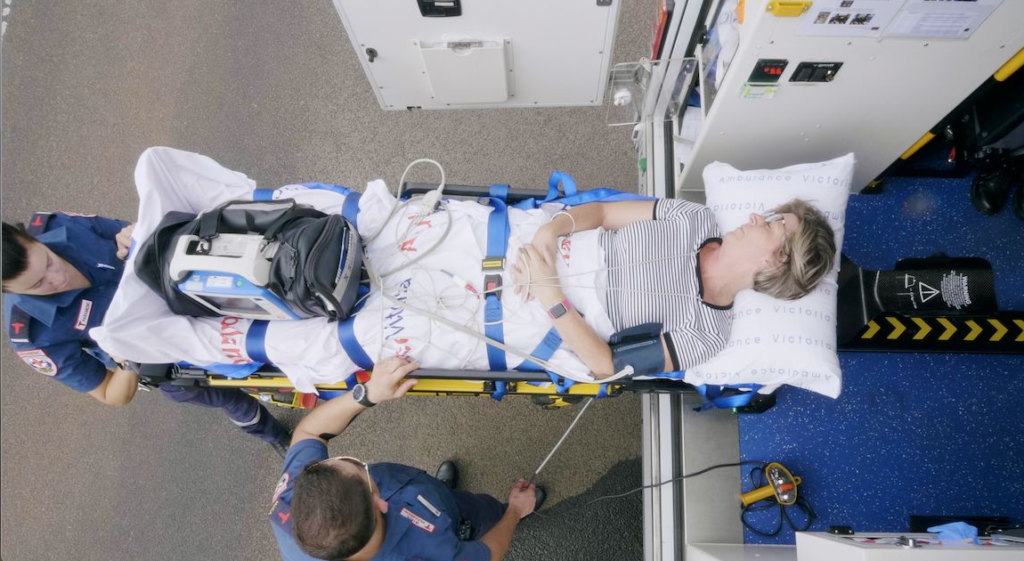Clot-busting drug trial improves patient care on mobile stroke unit

Australian researchers are the first in the world to demonstrate a clot-busting drug tenecteplase, typically used for acute myocardial infarction, can significantly speed up the dissolving of a clot causing a stroke – in a mobile stroke ambulance. These specially equipped vehicles diagnose and treat stroke patients at the scene and on the way to a hospital’s emergency department. The new trial shows the use of tenecteplase results in ‘ultra-early’ clinical improvement.
Mobile stroke ambulances are used in major cities around the world to improve the speed of care offered to people suffering a stroke. They lead to better patient outcomes due to the earlier treatment. The vehicles contain a portable CT brain scanner, an essential tool in the diagnosis of stroke, and take clinicians to the patient to provide prehospital treatment. Treatment of acute ischemic stroke Is highly time dependent, and global efforts focus on earlier clot dissolving or removal.
The results of the phase II, randomised, controlled trial were delivered to the 8th European Stroke Organisation conference in Lyon, France on May 4 (7pm AEST).
The trial showed that patients treated with tenecteplase had a significantly higher chance of ultra-early clinical improvement on their way to the hospital, compared to the current standard of care
Treatment with this drug is delivered significantly faster – via a single dose rather than the traditional one-hour infusion using an older drug, alteplase. “This trial combines Melbourne’s stroke ambulance with a much more effective acute treatment to provide the optimal model of care,” he said.
Patients had a significantly smaller perfusion lesion compared to those treated with alteplase and a significantly higher chance of ultra-early clinical improvement (NIHSS change). They were treated significantly faster (median 7min) than those treated with alteplase.
Australia’s first and only mobile stroke ambulance (known as mobile stroke unit or MSU) in Melbourne is now the busiest clot-dissolving service in the country. It operates from the Royal Melbourne Hospital and is managed by Ambulance Victoria. A second mobile stroke unit is being designed and will soon serve Sydney.
Available for interview:
- Professor Mark Parsons, Medicine and Neurology, UNSW; chief investigator with the Australian Stroke Alliance
- Associate Professor Andrew Bivard, chief technology officer with the Australian Stroke Alliance.
Funders of this work: Melbourne Academic Centre for Health through the Australian Government’s Medical Research Future Fund (MRFF) as part of the Rapid Applied Research Translation program.
Media liaison: Amanda Place, Australian Stroke Alliance, amanda.place@austrokealliance.org.au